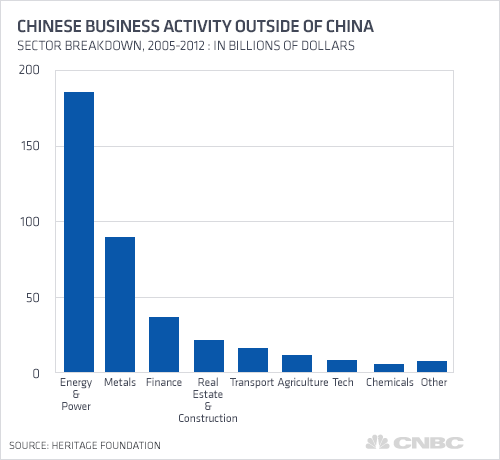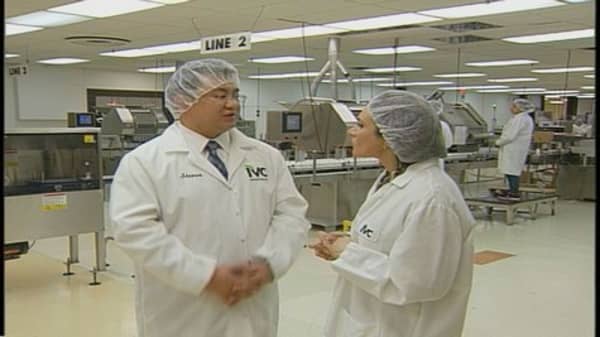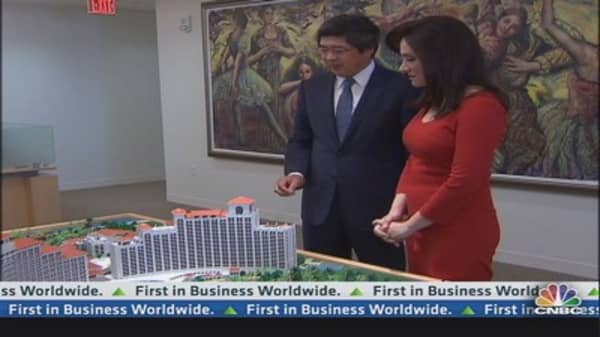Wang tells CNBC that he plans acquisitions in nearly every part of the globe. By doing so, he thinks he can garner better profit-sharing agreements with Hollywood movie studios and hence higher profitability.
International Vitamin Corporation, of Freehold, N.J., came into being after a Chinese company bought the vitamin assets of Inverness Medical from private equity in 2010. CEO Steven Dai says the investors (he's one of them) have pumped "upwards of hundred millions of dollars into the company," since then—improving its IT backbone, expanding warehouse capacity, and increasing the number of employees from 280 to 400, all of them in the U.S.
(Read More: Will China Buy Up Greece's Best Assets?)
Dai, the only Chinese employee, says buying an American company made the most sense because the U.S. has a highly developed, multi-billion dollar, nutritional market "which constantly grows every year."
Of the three companies that spoke to CNBC, the one with the longest history in the U.S. is China Construction of America, a wholly owned subsidiary of China State Construction Engineering Corporation (CSCEC) that had $500 million in revenue in 2012. (Parent company CSCEC had revenue of $92 billion last year.) Although publicly traded in Shanghai, CSCEC shares are majority owned by the Chinese government, making China Construction of America part of what's known as a State-Owned Enterprise, or SOE.
China Construction set up shop here nearly 30 years ago in 1985 because the U.S. was the world's largest construction market at the time. Why are they still doing business here, when China is now larger and growing faster? Geographic diversification, CEO Ning Yuan tells CNBC, in case the home market falters.
The company has been successful at bidding for state-level and municipal projects such as public schools in South Carolina and New York State transportation projects such as the $407 million Alexander Hamilton bridge rehabilitation.
But Yuan expressed frustration at not being able to qualify for larger federal projects—what are known as "P3s"—Public Private Partnerships. The U.S. Department of Transportation requires companies to become pre-qualified before bidding on P3s. Despite numerous attempts, Yuan says they've never been prequalified. "I think that's happened not only to a Chinese company but also to some other foreign companies," he said. "I would say that it is a little bit political."
That may be true. Firms owned by the Chinese government are perceived as having unfair advantages, such as access to cheaper financing from the Chinese banks, which are also government-owned. Yuan rejects the notion, saying Chinese banks charge them market rates that are comparable to any other multinational bank: "I know from my heart we don't have any advantage."








